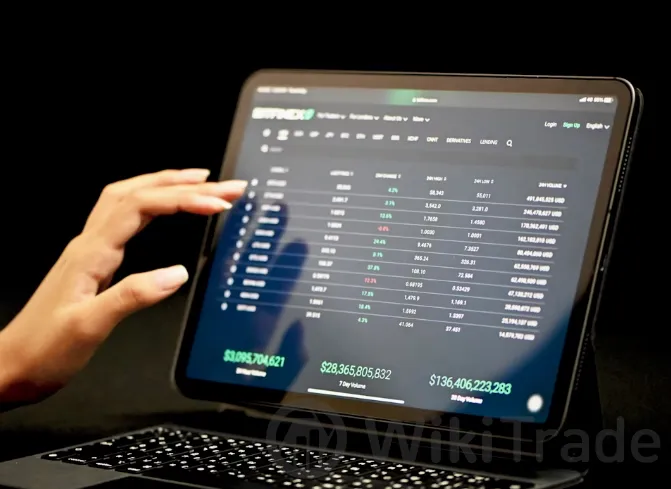How to set up a crypto wallet?
Abstract: Cryptocurrency wallets are essential tools for managing digital assets. They store private keys, interact with blockchains, and ensure secure transactions. Here's a step-by-step guide to setting up a crypto wallet.
Choosing the Right Wallet Type
There are three main types of wallets:
- Hardware Wallets: These are physical devices that keep private keys offline for enhanced security.
- Software Wallets: These are apps or programs installed on devices or accessed online.
- Paper Wallets: These are physical documents with public and private keys printed on them for offline storage.
- Downloading and installing wallet software or apps.
- Generating a new wallet address or importing an existing one.
- Setting a strong password or PIN.
- Backing up your recovery seed phrase, which is crucial for wallet restoration.
- Enable two-factor authentication.
- Keep your wallet software updated.
- Never share private keys or recovery phrases.
- Security: Prioritizes security with client-side encryption.
- Supported Cryptocurrencies: Primarily Ethereum and ERC-20 tokens.
- User Interface: Intuitive browser extension and mobile app.
- Integration: With decentralized and centralized exchanges.
- Security: Uses two-factor authentication and biometric security.
- Supported Cryptocurrencies: A wide range of cryptocurrencies.
- User Interface: Easy navigation and trading tools.
- Integration: Directly with the Coinbase exchange.
- Choose a Reputable Exchange: Platforms like Coinbase, Binance, and Kraken are user-friendly.
- Create an Account: Verify your identity as required.
- Deposit Funds: Use fiat currency or other cryptocurrencies.
- Select the Crypto to Buy: Start with popular options like Bitcoin or Ethereum.
- Transfer to Your Wallet: Use a secure wallet for long-term storage.
- Cryptocurrency Exchanges: Buy, sell, and trade cryptocurrencies.
- Peer-to-Peer Platforms: Direct transactions with a variety of payment methods.
- Cryptocurrency ATMs: Physical kiosks for buying crypto with cash or cards.
- Over-the-Counter Desks: For high-volume traders and institutional investors.
- Cryptocurrency Wallets: Some wallets offer integrated buying services.
- Cryptocurrency Funds and Investment Apps: Invest in crypto funds or trade derivatives.
- Cryptocurrency Mining: Earn cryptocurrencies by validating transactions.
- Digital Currency Exchanges: Trade fiat for Bitcoin.
- Peer-to-Peer Platforms: Direct transactions with flexible payment options.
- Bitcoin ATMs: Purchase Bitcoin in person.
- Over-the-Counter Desks: For large-scale transactions.
- Mining: Earn Bitcoin by contributing to the network.
- Earn Bitcoins: Through freelancing, tasks, or affiliate programs.
- Bitcoin Rewards Programs: Participate in incentive programs.
- Gift Cards and Vouchers: Purchase Bitcoin with vouchers on certain exchanges.

Selecting a Wallet Provider
Research wallet providers for their reputation, security features, customer support, and compatibility with your cryptocurrencies of choice.

Creating Your Wallet
The process varies by wallet type but generally includes:

Funding Your Wallet
Transfer cryptocurrencies to your wallet from an exchange or another wallet. Double-check wallet addresses before sending funds.

Protecting Your Wallet
To enhance wallet security:

Managing Your Wallet
Regularly check your balance and transaction history. Stay vigilant against scams and phishing attempts.

Is a Crypto Wallet a Good Place to Buy Crypto?
While wallets aren't primarily for buying crypto, some offer integrated features for buying within the wallet interface. This can be convenient but may have higher fees and limited selection.

Wallet Apps
Wallet apps like Coinbase Wallet and Trust Wallet provide a user-friendly interface for managing cryptocurrencies on mobile devices.

Representative Crypto Wallets
Metamask Wallet

Coinbase Wallet

How to Buy Crypto for Beginners
Different Ways to Buy Crypto
Where to Find Bitcoin
Bitcoins can be acquired through various channels:
Is Cro Coin Suitable for Beginners?
Cro coin, as a hypothetical cryptocurrency, could be suitable for beginners due to its user-friendly features, security, community support, liquidity, and growth potential.
FAQ
Securely Storing Cryptocurrencies: Use hardware wallets like Ledger or Trezor, or reputable software wallets.
Finding Crypto Information and News: Follow reputable crypto news sites and social media platforms.
Bitcoin Wallet Address: A unique identifier for sending, receiving, and storing Bitcoins.
Bitcoin Wallet Address vs. Bitcoin Account: The address is part of the account but does not represent the entire account.
Considering a Cryptocurrency Investment: Evaluate technology, team, liquidity, community support, and regulations.




Top News
 WikiTrade
WikiTrade WikiTrade
WikiTrade WikiTrade
WikiTrade WikiTrade
WikiTrade WikiTrade
WikiTrade WikiTrade
WikiTrade WikiTrade
WikiTrade WikiTrade
WikiTrade WikiTrade
WikiTrade WikiTrade
WikiTrade


